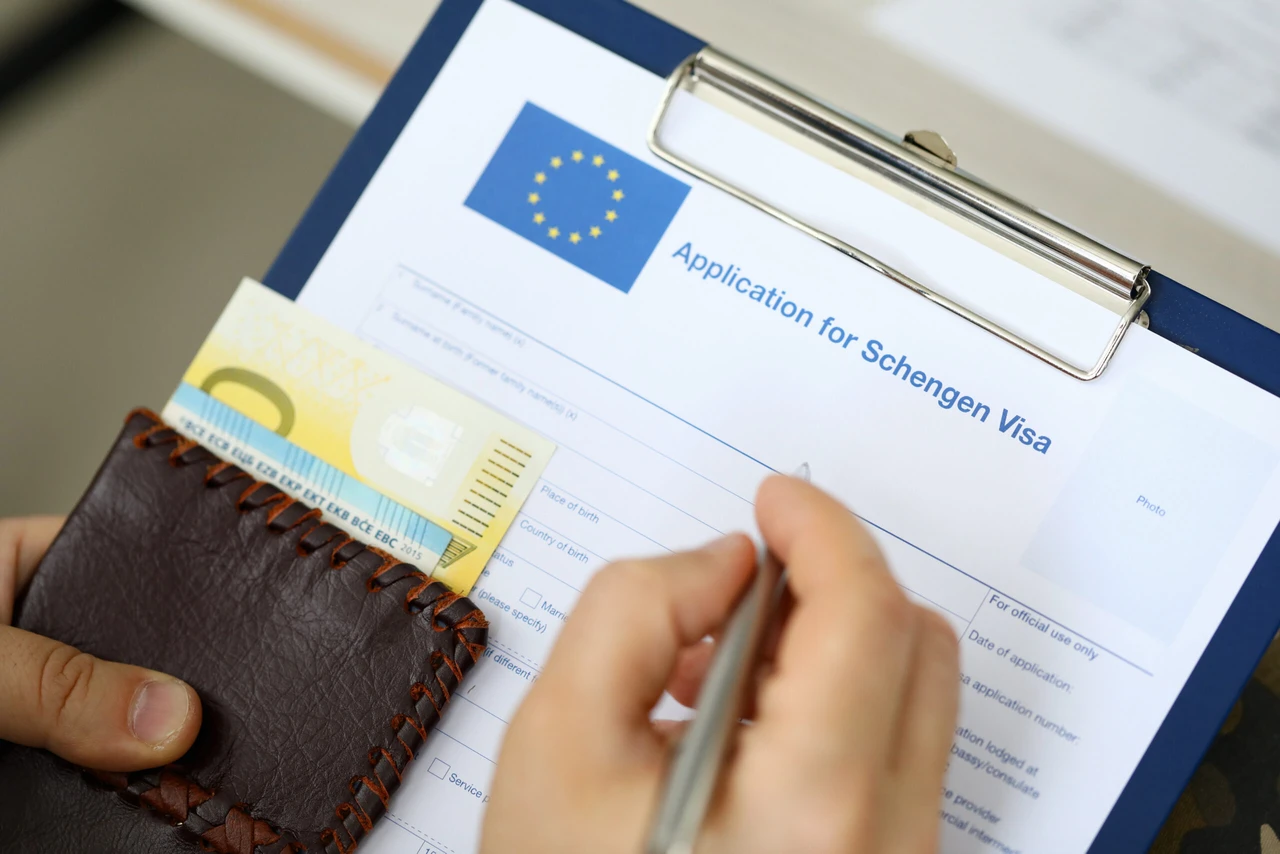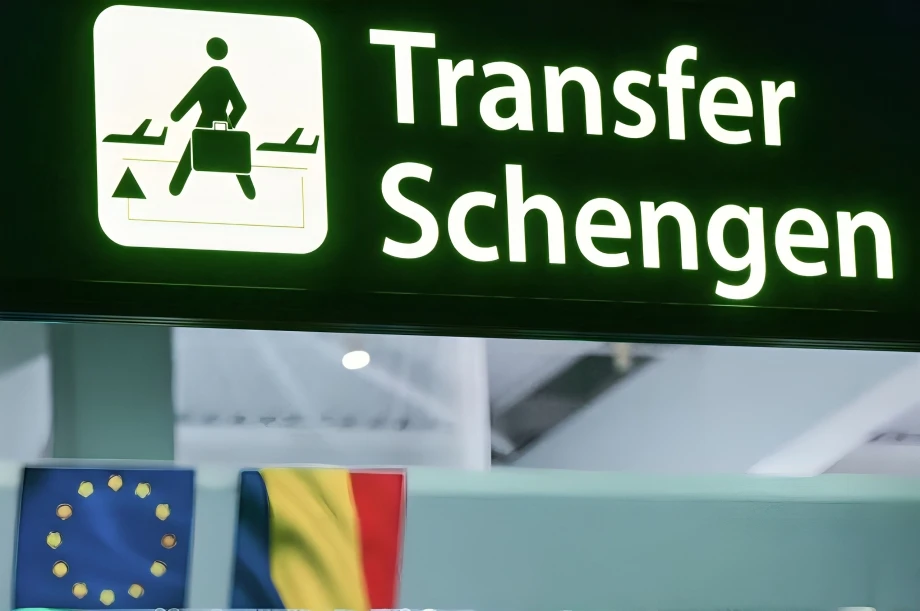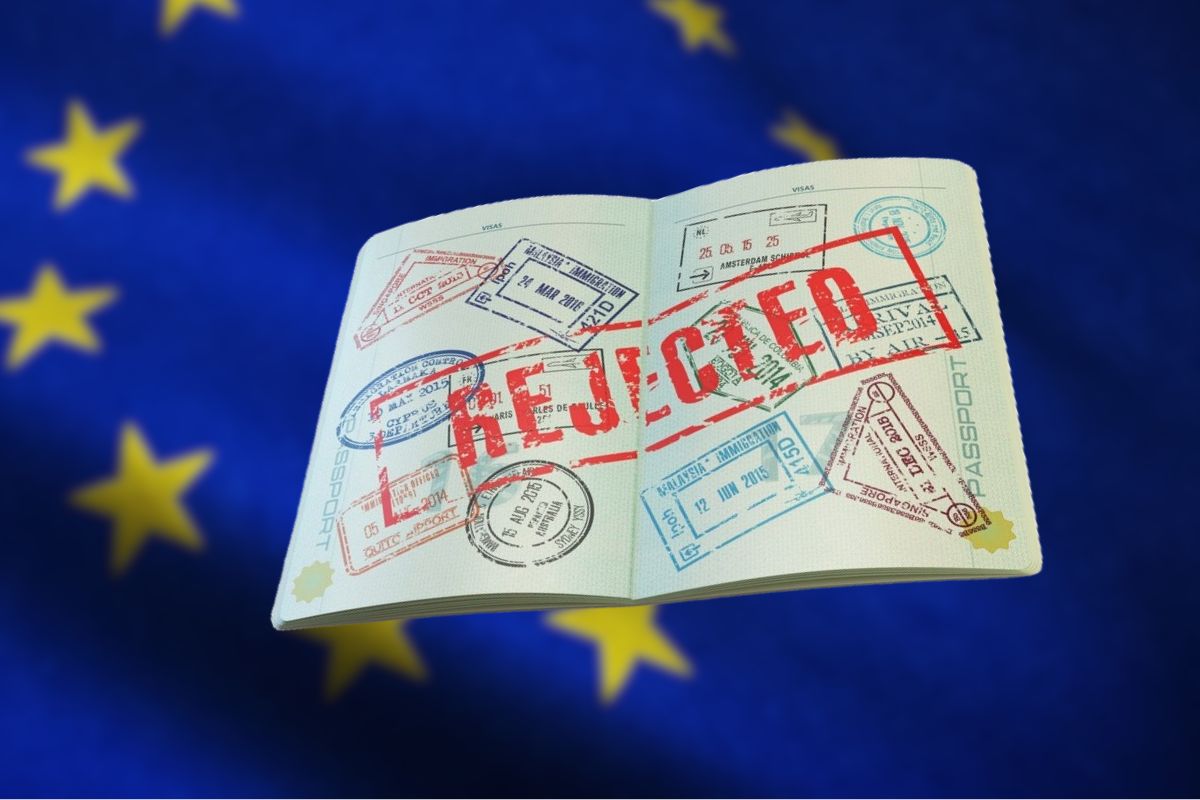Turkish businesses face ‘economic embargo’ as EU requires corporate data for visa
 Top view of man filling out documents for Schengen visa while holding money, accessed on Feb. 21, 2025. (Adobe Stock Photo)
Top view of man filling out documents for Schengen visa while holding money, accessed on Feb. 21, 2025. (Adobe Stock Photo)
The ongoing visa crisis between Türkiye and the European Union has deepened with new controversial requirements that Turkish business leaders are calling an “economic embargo” and a violation of international trade law.

Visa process forces complete financial disclosure
According to recent developments, EU member states are now requiring Turkish companies to submit complete three-month bank transaction records as mandatory documentation for employee Schengen visa applications.
This requirement extends beyond individual payslips and personal bank statements to include detailed financial records of entire companies
“We can’t even meet with potential customers,” one exporter told reporters. “Our employees’ visas are being rejected because we won’t share our company information. This isn’t security—it’s a direct economic embargo.”

Application costs soar as rejections exceed 40 percent
Bulgaria and Romania have joined Germany and France in effectively halting visa processing for Turkish citizens. Even neighboring Bulgaria is no longer granting visa appointments, expanding the crisis beyond major European nations.
Business experts note that three months of transaction records for a large company could amount to thousands of pages of sensitive financial data. Industry representatives describe the requirement as “forcing disclosure of trade secrets” and unprecedented in visa application history.
The cost of applying for a Schengen visa has now exceeded 30,000 Turkish lira (approximately $940), including consulate fees, translation, and notary expenses, with no guarantee of approval. Rejection rates for applications from Türkiye have surpassed 40%.
Legal experts contend that demanding such extensive corporate financial information violates both Türkiye’s Personal Data Protection Law (KVKK) and international data protection regulations. The requirements are particularly devastating for small and medium enterprises, preventing them from participating in European trade fairs and business meetings.
Diplomatic sources indicate Ankara is preparing to raise the issue with Brussels. Meanwhile, Turkish citizens and businesses continue to face what many describe as both an economic and humanitarian crisis on Europe’s borders.
The standard Schengen visa application already requires approximately 35 documents, including a passport, identification, a personal letter, employment verification, an invitation letter, travel reservations, a marriage certificate (if applicable), social security registration, salary statements, company registration documents, and travel health insurance.



